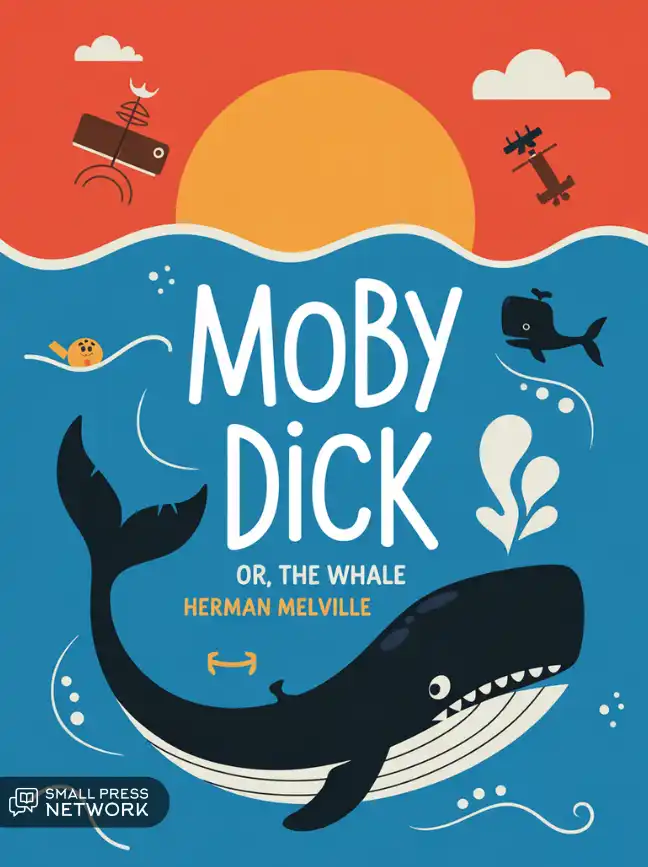CHAPTER 12
Biographical
Queequeg was a native of Rokovoko, an island far away to the West and
South. It is not down on any map; true places never are.
When a new-hatched savage running wild about his native woodlands in
a grass clout, followed by the nibbling goats, as if he were a green sapling;
even then, in Queequeg’s ambitious soul, lurked a strong desire to see
something more of Christendom than a specimen whaler or two. His father
was a High Chief, a King; his uncle a High Priest; and on the maternal side
he boasted aunts who were the wives of unconquerable warriors. There was
excellent blood in his veins—royal stuff; though sadly vitiated, I fear, by
the cannibal propensity he nourished in his untutored youth.
A Sag Harbor ship visited his father’s bay, and Queequeg sought a
passage to Christian lands. But the ship, having her full complement of
seamen, spurned his suit; and not all the King his father’s influence could
prevail. But Queequeg vowed a vow. Alone in his canoe, he paddled off to a
distant strait, which he knew the ship must pass through when she quitted
the island. On one side was a coral reef; on the other a low tongue of land,
covered with mangrove thickets that grew out into the water. Hiding his
canoe, still afloat, among these thickets, with its prow seaward, he sat down
in the stern, paddle low in hand; and when the ship was gliding by, like a
flash he darted out; gained her side; with one backward dash of his foot
capsized and sank his canoe; climbed up the chains; and throwing himself
at full length upon the deck, grappled a ring-bolt there, and swore not to let
it go, though hacked in pieces.
In vain the captain threatened to throw him overboard; suspended a
cutlass over his naked wrists; Queequeg was the son of a King, and
Queequeg budged not. Struck by his desperate dauntlessness, and his wild
desire to visit Christendom, the captain at last relented, and told him he
might make himself at home. But this fine young savage— this sea Prince
of Wales, never saw the Captain’s cabin. They put him down among the
sailors, and made a whaleman of him. But like Czar Peter content to toil in
the shipyards of foreign cities, Queequeg disdained no seeming ignominy, if
thereby he might happily gain the power of enlightening his untutored
countrymen. For at bottom—so he told me—he was actuated by a profound
desire to learn among the Christians, the arts whereby to make his people
still happier than they were; and more than that, still better than they were.
But, alas! the practices of whalemen soon convinced him that even
Christians could be both miserable and wicked; infinitely more so, than all
his father’s heathens. Arrived at last in old Sag Harbor; and seeing what the
sailors did there; and then going on to Nantucket, and seeing how they
spent their wages in that place also, poor Queequeg gave it up for lost.
Thought he, it’s a wicked world in all meridians; I’ll die a pagan.
And thus an old idolator at heart, he yet lived among these Christians,
wore their clothes, and tried to talk their gibberish. Hence the queer ways
about him, though now some time from home.
By hints I asked him whether he did not propose going back, and having
a coronation; since he might now consider his father dead and gone, he
being very old and feeble at the last accounts. He answered no, not yet; and
added that he was fearful Christianity, or rather Christians, had unfitted him
for ascending the pure and undefiled throne of thirty pagan Kings before
him. But by and by, he said, he would return,—as soon as he felt himself
baptized again. For the nonce, however, he proposed to sail about, and sow
his wild oats in all four oceans. They had made a harpooneer of him, and
that barbed iron was in lieu of a sceptre now.
I asked him what might be his immediate purpose, touching his future
movements. He answered, to go to sea again, in his old vocation. Upon this,
I told him that whaling was my own design, and informed him of my
intention to sail out of Nantucket, as being the most promising port for an
adventurous whaleman to embark from. He at once resolved to accompany
me to that island, ship aboard the same vessel, get into the same watch, the
same boat, the same mess with me, in short to share my every hap; with
both my hands in his, boldly dip into the Potluck of both worlds. To all this
I joyously assented; for besides the affection I now felt for Queequeg, he
was an experienced harpooneer, and as such, could not fail to be of great
usefulness to one, who, like me, was wholly ignorant of the mysteries of
whaling, though well acquainted with the sea, as known to merchant
seamen.
His story being ended with his pipe’s last dying puff, Queequeg embraced
me, pressed his forehead against mine, and blowing out the light, we rolled
over from each other, this way and that, and very soon were sleeping.




